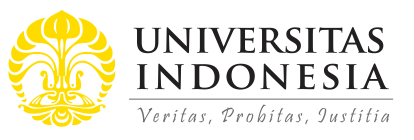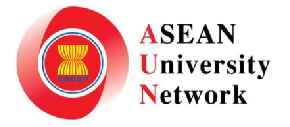
Abstract
This article discusses a community engagement program that supports housewives as financial managers in difficult times, like COVID-19 Pandemic. This paper believes in the capacity of housewives, particularly in managing the financial conditions of the domestic. The pandemic conditions affect the world in multiple aspects and levels. Physical distancing as one of the policies applied had a wide impact, especially in the economic sector, globally and locally. The temporary shutdown of various business sectors has impacted the society, starting with a decrease in the family’s income, continuing with the difficulties to meet their needs, and eventually their welfare. This article studies the implementation of a community project in Sinduadi Village, Yogyakarta, Indonesia, focusing on family financial planning (FFP), which arguably can assist housewives to manage their finances during challenging periods. Starting from compiling materials for the introduction of the FFP application, the program was conducted through a series of training and discussion activities, setting forum for obtaining assistance from financial management experts. After the training, several domestic financial problems can be identified by the housewives, which help them to outline their priorities and thus make a better financial plan for the future.
References
Abodunrin, O., Oloye, G., & Adesola, B. (2020). Coronavirus pandemic and its implication on global economy. International Journal of Arts, Languages and Business Studies (IJALBS), 4, 13–23.
Adam, A. M., Frimpong, S., & Boadu, M. O. (2017). Financial literacy and financial planning: Implication for financial well-being of retirees. Business and Economic Horizons, 13(2), 224–236. http://dx.doi.org/10.22004/ag.econ.264696
Archuleta, K. L., & Grable, J. E. (2012). Does it matter who makes the financial decisions? An exploratory study of married couples’ financial decision- making and relationship satisfaction. Financial Planning Review, 5(4), 1–15. http://hdl.handle.net/2097/16766
Atalan, A. (2020). Is the lockdown important to prevent the COVID-9 pandemic? Effects on psychology, environment and economy-perspective. Annals of Medicine and Surgery, 56, 38–42. https://doi.org/10.1016/j.amsu.2020.06.010
Barber, S. J., & Kim, H. (2021). COVID-19 worries and behavior changes in older and younger men and women. The Journals of Gerontology: Series B, 76(2), e17– e23. https://doi.org/10.1093/geronb/gbaa068
Bogan, V. L., Geczy, C. C., & Grable, J. E. (2020). Financial planning: A research agenda for the next decade. Financial Planning Review, 3(2). https://doi.org/10.1002/cfp2.1094
Ciciolla, L., & Luthar, S. S. (2019). Invisible household labor and ramifications for adjustment: Mothers as captains of households. Sex Roles, 81, 467–486. https://doi.org/10.1007/s11199-018-1001-x
Devaney, S. A. (1994). The usefulness of financial ratios as predictors of household insolvency: Two perspectives. Financial Counseling and Planning, 5(1), 5–26.
Edwards, K. P. (1991). Planning for family asset transfers. Journal of Financial Counseling and Planning, 2(801), 55–78.
Farboodi, M., Jarosch, G., & Shimer, R. (2020). Internal and external effects of social distancing in a pandemic. http://www.nber.org/papers/w27059
Flodén, M., Kilström, M., Sigurdsson, J., & Vestman, R. (2017). Household debt and monetary policy: Revealing the cash-flow channel. The Economic Journal, 131(636), 1742–1771.
Hoodfar, H. (1993). Household budgeting and financial management in a lower-income Cairo neighborhood. In D. Dwyer & J. Bruce (Eds.), A home divided: Women and income in the third world (pp. 120–142). Stanford University Press. https://doi.org/10.1515/9780804765824-008
Instruksi Presiden [INPRES]: Refocussing kegiatan, realokasi anggaran, serta pengadaan barang dan jasa dalam rangka percepatan penanganan corona virus disease 2019 (COVID-19), No. 4 Tahun 2020 (2020). https://peraturan.bpk.go.id/Home/Details/134755/inpres-no-4-tahun-2020
Khashadourian, E. (2017). Financial case management and the household cash flow model. Opportunity to Assets. https://opportunitytoassets.com/resource/2017.pdf
Lin, Z., & Meissner, C. M. (2020). Health vs. Wealth? Public health policies and the economy during Covid-19. National Bureau of Economic Research. https://doi.org/10.3386/w27099
Magang. (2019, March 15). Desa Sinduadi, Mlati, Sleman dikukuhkan jadi desa tangguh bencana. Radar Jogja. https://radarjogja.jawapos.com/sleman/65733684/ desa-sinduadi-mlati-sleman-dikukuhkan-jadi-desa-tangguh-bencana
Mahapatra, M. S., Raveendran, J., & De, A. (2018). Are financial plans orchestrated by mental accounts? An empirical investigation into the role of mental accounting on personal financial planning. SSRN.
Nugroho, R. S. (2020, March 31). Rekap kasus corona di Indonesia bulan Maret dan prediksi bulan April. Kompas. https://www.kompas.com/tren/read/2020/03/31/213418865/ rekap-kasus- corona-indonesia-selama-maret-dan-prediksi-di-bulan- april?page=all
Otoritas Jasa Keuangan [OJK]. (2017). Perencanaan keuangan keluarga. https:// sikapiuangmu.ojk.go.id/ Front End/images/ FileDownload/25_Buku_ Perencanaan_Keuangan.pdf
Payne, S. H., Yorgason, J. B., & Dew, J. P. (2014). Spending today or saving for tomorrow: The influence of family financial socialization on financial preparation for retirement. Journal of Family and Economic Issues, 35(1), 106–118. https://doi. org/10.1007/s10834-013-9363-2
Pemanfaatan Dana Alokasi Khusus (DAK) bidang kesehatan untuk pencegahan dan/atau penanganan Covid-19 Tahun Anggaran 2020. No. HK.01.07/MENKES/215/2020 (2020). https://djpk.kemenkeu.go.id/wp-content/uploads/2020/03/KepMenkes- DAK-COVID-19.pdf
Protokol Isolasi Diri Sendiri dalam Penanganan Coronavirus Diseases (COVID-19) No. HK. 02. 01/MENKES/202/2022 (2020). Kementerian Kesehatan Republik Indonesia [KEMKES]. https://covid19.kemkes.go.id/protokol-covid-19/protokol- isolasi-diri-sendiri-dalam-penanganan-covid-19
Purwidianti, W., & Mudjiyanti, R. (2016). Analisis pengaruh pengalaman keuangan dan tingkat pendapatan terhadap perilaku keuangan keluarga di Kecamatan Purwokerto Timur. Benefit, 1(2), 141–148. https://doi.org/10.23917/benefit.v1i2.3257
Qian, M., & Jiang, J. (2022). COVID-19 and social distancing. Journal of Public Health, 309(1), 259–261. https://doi.org/10.1007/s10389-020-01321-z
Rasumovskaya, E. A. (2013). The stratification principles in the personal financial planning mechanism implementation dealed with disposable income of households distribution. American Journal of Economics and Control Systems Management, 1, 29–36.
Sánchez-Marín, G., Portillo-Navarro, M. J., & Clavel, J. G. (2016). The influence of family involvement on tax aggressiveness of family firms. Journal of Family Business Management, 6(2), 143–168. https://doi.org/10.1108/JFBM-03-2015-0017
Scott, H. (2020). Financial literacy and the use of alternative financial services: A behavioural perspective [Master’s thesis, University of Ottawa]. uO Research. http://dx.doi.org/10.20381/ruor-25238
Skogrand, L., Johnson, A. C., Horrocks, A. M., & DeFrain, J. (2011). Financial management practices of couples with great marriages. Journal of Family and Economic Issues, 32(1), 27–35. https://doi.org/10.1007/s10834-010-9195-2
Stanley, Y. P. L., & Chok, N. V. (2017). A case study on effective financial planning in Malaysia. Asia Pacific Journal of Business, Humanities, and Education, 2(2), 2–17.
Tamaya, Y. H. (2018). Pemetaan batas pedukuhan di Desa Sinduadi, Kecamatan Mlati, Kabupaten Sleman dengan metode kartometrik [Unpublished associate degree’s final project] Universitas Gadjah Mada.
Thunström, L., Newbold, S. C., Finnoff, D., Ashworth, M., & Shogren, J. F. (2020). The benefits and costs of using social distancing to flatten the curve for COVID-19. Journal of Benefit-Cost Analysis, 1(2), 179–195. https://doi.org/10.1017/bca.2020.12
van der Vegt, I., & Kleinberg, B. (2020). Women worry about family, men about the economy: Gender differences in emotional responses to COVID-19. In S. Aref, K. Bontcheva, M. Braghieri, F. Dignum, F. Giannotti, F. Grisolia, & D. Pedreschi (Eds.). Lecture Notes in Computer Science: Vol. 12467 (pp. 397–409). Springer. https://doi.org/10.1007/978-3-030-60975-7_29
World Health Organization [WHO]. (2020). Weekly epidemiological update – 28 September. https://www.who.int/publications/m/item/weekly-epidemiological-update-on-covid-19 28-september-2022
Yulianti, N., & Silvy, M. (2013). Sikap pengelola keuangan dan perilaku perencanaan investasi keluarga di Surabaya. Journal of Business and Banking, 3(1), 57–68.
Zaimah, R., Masud, J., Haron, S. A., Othman, M., Awang, A. H., & Sarmila, M. D. (2013). Financial well-being: Financial ratio analysis of married public sector workers in Malaysia. Asian Social Science, 9(14), 1–6. https://doi.org/10.5539/ass.v9n14p1
Recommended Citation
Fajri, Faridiah Aghadiati; Siregar, Hilda Octavana; Oktyawati, Dianila; and Rumiyati, Rumiyati
(2023).
Empowering Women as Family Financial Planners: A Mitigation of the Pandemic's Economic Impact.
ASEAN Journal of Community Engagement, 7(1), 67-79.
Available at: https://doi.org/10.7454/ajce.v7i1.1117
Included in
Adult and Continuing Education Commons, Behavioral Economics Commons, Education Economics Commons, Family and Consumer Sciences Commons







